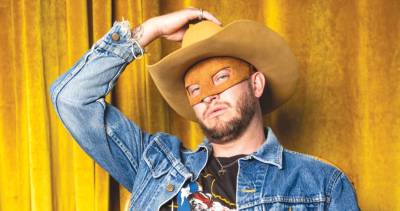Homeless in Vancouver: VPD street checks hit Indigenous people hard. One reason starts with the letter “H”
Police street check statistics for 2008 to 2017—posted to the Vancouver Police Department website May 24 in response to a freedom of information request (FOI)—show street checks have consistently targeted a disproportionately large number of people of Indigenous identity and African ancestry.
This has sparked widespread concern that the VPD has been engaging in racial profiling.
Curiously, little or no thought has been given to the obvious role that homelessness has to have played in skewing the street check numbers—especially given the well-known fact that something like a third of all Vancouver homeless people are of Indigenous ancestry.
Other important facts revealed by the numbers have also gone largely unremarked; such as the fact that VPD officers have recently gotten much more professional about recording street checks—even as the total number of checks has fallen to a 10-year low that is nearly half what it was in 2010.
Ethnic bias in street checks is clear, even if the reasons aren’t
In a statement posted June 14 on the Vancouver police website, to directly address concerns of racial profiling and bias on the part of the VPD, Chief Constable Adam Palmer wrote:
A street check occurs when a police officer encounters someone believed to be involved in criminal activity or a suspicious circumstance, and documents the interaction. They are not random or arbitrary checks.
Chief Palmer flatly stated that Vancouver Police Department police checks “are not based on ethnicity”.
How then to explain the fact that over the 10-year period between 2008 and 2017, people identifying as Indigenous, made up, on average, 14.9 percent of all people who were stopped on the street and questioned by the VPD, even though this group made up, on average, under 2 percent of Vancouver’s population?
Or that, over the same 10-year period, an average of 4.51 percent of a street checks involved people of African ancestry, despite the fact that they made up no more than one percent of the city’s population?
It’s hard to brush aside the appearance of racial profiling in these VPD street-check numbers, especially where the disproportionate number of checks on people of African ancestry are concerned.
And the bias regarding people identifying as Indigenous, even as it’s open to other explanations, is incredibly glaring.
In 2011, the 1,384 street checks conducted on people who identified as Indigenous represented fully 11.58 percent of the entire indigenous population of Vancouver.
Think about that. An Indigenous person had just over a 1-in-8 chance of being stopped on the street and questioned by the VPD in 2011.
Five years later, in 2016, according to the VPD stats, an Indigenous person’s chance of being stopped and subjected to a street check fell to a little over 1-in-11—much better but still incredibly high compared to so-called Caucasians, who only faced a 1-in-57 chance of being stopped.
In 2016, Caucasians represented over 44 percent of the city’s population but only faced a total of 4,916 street checks. This means that though they were 22 times more numerous, population-wise, Caucasians only faced four times more street checks than Indigenous people.
There is clearly a strong bias against Indigenous people in the street check numbers.
If we are to give Chief Palmer the benefit of the doubt when he says that the VPD street checks “are not based on ethnicity”, we have to find something besides racial profiling to explain why they have focused on Indigenous people to such a ridiculous degree.
That’s where homelessness comes in.
If you’re close to the street you’re close to a street check
While Indigenous people accounted for an average of 14.9 percent of all street checks between 2008 and 2017, they also represented an average of 31.21 percent of Vancouver’s homeless population.
Homelessness, therefore, has to play a big role in the over-representation of Indigenous people in street check statistics. Because frankly, being homeless in Vancouver has generally meant being a target for police street checks.
Unfortunately, the stats released by the VPD do not break out the number of street checks that were performed on homeless people (Indigenous or otherwise).
However, from personal experience—and knowing that an average of at least 459 unsheltered souls were wandering the city’s streets and alleys overnight between 2008 and 2017—I can assure you that the number had to be considerable.
Homelessness itself is a suspicious activity to the police
People who are not homeless have to understand the way in which homeless people—and the simple act of them being homeless—pushes all the wrong buttons, so far as law enforcement is concerned.
To start with, we can’t help but act like criminals. Even when we mean to be perfectly law-abiding, so much of what homelessness looks like, just happens to look like a crime in progress.
The innocent pursuits of Dumpster diving and collecting returnable beverage containers, for example, often require a degree of trespassing—given where recycling bins and Dumpsters are often situated. And more-often-than-not, sleeping rough requires a studied and total disregard for private property.
Honestly, there is not much difference, when seen from half a block away, between tweeking for cigarette butts, looking for a sleeping spot, and “casing a joint.”—especially when done at night, when any number of homeless people prefer to do their foraging.
Seen in that light, Chief Palmer’s description of the ideal candidate for a police street check, as “…someone believed to be involved in criminal activity or a suspicious circumstance…” perfectly describes someone who is homeless.
No doubt this has been the point of view of the Vancouver police for almost all the time I have been homeless. It is probably also the view of most Vancouver residents as well—including many who may read this.
Isn’t it true that when one of you drives out of an underground parkade, you will be doubly sure to stop and wait for the security gate to close if you see a homeless person like myself in close proximity?
And doesn’t the mere sight of a person with a shopping cart often cause someone who’s just parked their car to give their key fob an extra “bleep” to also make doubly sure their car doors are locked?
The fact is, homelessness is an inherently suspicious activity in the eyes of both residents and Vancouver police alike.
Often, when I find a resident in their car, stopped beside me in a back alley, I will hear the “thunk” of their door locks. When the car is a VPD cruiser, I will usually hear the power window rolling down.
Reliving my checkered past
I cannot even begin to count, in my 14 years as a boringly law-abiding homeless person, how many times I have been stopped by the police on a street, in an alley, or woken up from a deep sleep and been subjected to a street check of one degree or another.
These checks have ranged all the way from answering a few questions and providing my name and date of birth to having to also turn out my pockets, and play show-and-tell with everything in my wallet, backpack, and bike pannier.
Police officers, on seeing my laptop, have always taken a keen interest in it but they have not (so far) taken it away from me.
I do remember one memorable street check in a Fairview back alley, in 2013 I think, when two officers wanted to see me boot my laptop to the desktop, in order to prove that it was mine.
The desktop was unfamiliar to them and I launched into an explanation of the Linux operating system, until one of officer politely, but firmly, asked me to please put the laptop away.
Police street checks are an important technique for proactively policing an area. At best they can pre-empt neighbourhood crime and promote real understanding between police officers and homeless people. At worst they are a blunt instrument that police can use to harass and intimidate target groups and individuals.
The bad old days of being homeless in Vancouver
For the first 10 or 12 years of my life on the streets—from 2004 to 2014-15—police street checks were as much a fact of homelessness in Vancouver as the rain—and almost as frequent.
I vividly remember how, from 2004 to 2007, the VPD’s approach to homeless people had a decidedly cruel streak.
Between 2004 and 2007, Vancouver police were known to stop homeless people who were pushing shopping carts and confiscate the carts and everything they contained. Homeless people were likewise stopped by the police and arbitrarily transported to other neighbourhoods—just because, I guess.
Throughout this three-year period, I remember how certain police officers tried to bait and trigger homeless people into the sort of aggressive displays that would justify hauling them in.
This sort of thuggery was especially true in 2004 and 2005, when the mayor (and head of the Vancouver police board) was Larry Campbell—a man who seemed to surely hate homeless people.
I recall how his administration brought in locking street trash bins to stop us from picking through them for returnables, and how he further tried to hoist the notion that collecting returnable beverage containers out of blue bins was stealing from the city.
Etched in my memory during this period is the sight a big, old homeless guy I knew, sitting on a bench on Granville Street, with three police officers standing around him, literally screaming at him. He just sat there, hunched over under the verbal assault. I recall that the police took away his shopping cart as well.
From 2006 through about 2015, police stops and street checks were frequent—a VPD cruiser couldn’t seem to drive by a homeless person without stopping—but the encounters were far less fraught, if you know what I mean.
In the past three years—in my experience, at least—Vancouver police have noticeably relaxed where street checks and rough sleeping are concerned. I have now gotten quite used to VPD cruisers driving by me in an alley.
One evening last year, I had an amusing conversation with one officer who did stop her cruiser.
She asked me what I was up to and I told her. Then I asked if she wanted me to give her my name and birth date.
“If you want to,” she replied.
Let’s not blame the messenger
Here’s an irony: the new, relaxed approach I’m seeing from Vancouver police officers in the streets and back alleys appears to coincide with the swearing-in of Adam Palmer, on May 25, 2015, as Vancouver’s new chief constable.
The irony, in part, is that Chief Palmer is the one on the hot seat for 10 years of questionable street check numbers that are actually part of the legacy of his predecessor: former chief Jim Chu—head of the force since 2007.
Another irony is that only in 2016, apparently (under the leadership of Chief Palmer), did the Vancouver Police Department finally adopt a written policy governing the performance of street checks.
The January 2016 report to the Police Board is interesting. I’m probably over-analyzing, but parts of it reads less like it’s codifying the VPD’s existing street check practice and more like it’s laying down a new approach—and laying down the law to the rank and file to take it to heart:
The difference between an arbitrary stop and a legitimate Street Check are vital distinctions to recognize if Street Checks are to be a component of policing within a free and democratic society where bias free policing and respect for individual’s Charter right not to be arbitrarily detained is a societal expectation and legal requirement.
The final irony is illustrated by the same street check statistics that Chief Palmer released in May and is now taking flack for.
One glaring flaw with the ethnicity numbers everyone has focused on is the lack of consistency in the reporting—with so many people’s ethnicity going unrecorded some years as to call all of that year’s numbers into question.
However, since 2015 under Chief Palmer, the number of “unrecorded” fell dramatically, from a high of 21.69 percent of all street checks in 2014, to just 6.07 percent in 2017.
More importantly, the stats show that the total number of street checks has fallen just as dramatically since he took over the VPD’s top job.
Street checks actually started falling in 2014, by a modest 3.51 percent. From 2015, when Chief Palmer took over, they fell year-by-year: 12.4 percent, then 10.96 percent, and finally, in 2017, by a whopping 26.37 percent.
From a 10-year high in 2010, of 12,376, total VPD street checks fell nearly 49 percent by 2017, to 6,322.
Every street check that doesn’t happen is one less possible instance of bias or profiling.
So the evidence of such a large reduction in the total number of checks should be the silver lining for anyone concerned by the cloud of bias and racial profiling hanging over these VPD street check statistics.















Comments